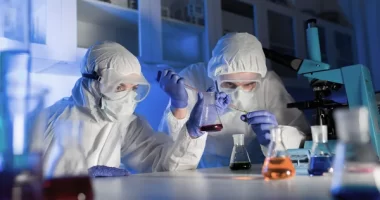If you’re not vaccinated, several factors can increase your risk of contracting HPV virus and cervical cancer. Read to know the right age to get HPV vaccine, types, dosage, etc.
Cervical cancer is mostly associated with human papillomavirus (HPV), an infection which can be transmitted sexually via vaginal or oral or anal exposure and also through skin-to-skin contact. Cervical cancer is increasing worldwide and can be reduced just by administering the HPV vaccine. In India, the peak age of cervical cancer incidents is 55-59 years. Current data from the National Cancer Registry Program (NCRP) indicates that the most common sites of cancer among women are breasts and cervix.
“HPV vaccine is directed towards prevention of cervical cancer and hence the vaccine should be administered in the age of 9-45 years, preferably before the sexual encounter,” says Dr. Sravanthi Gadhiraju, Consultant Gynaecologist, Obstetrician and Laparoscopic Surgeon, Yashoda Hospitals, Hyderabad.
Further, she helps us understand more about cervical cancer, the importance of HPV vaccination, right age to get the shot, dosage and more. Excerpts:
Types of HPV vaccines
There are three HPV vaccines available globally: bivalent, quadrivalent and 9-valent.
- The bivalent HPV vaccine is given to girls and young women from 9 to 45 years to prevent cervical cancer, caused by HPV strains 16 and 18. This vaccine can be administered even if the patient is tested positive for HPV or had an abnormal pap smear in the past.
- The quadrivalent HPV Vaccine protects against an infection caused by the HPV types 6, 11, 16 and 18. The 16 & 18 strains are responsible for 70-80 % of cervical cancers and 6 & 11 responsible for at least 90% of genital warts. This vaccine can be administered even if the patient is tested positive for HPV test or had an abnormal pap smear in the past. It demonstrates 98-100% protection against cervical cancer, vulvar vaginal cancer and genital warts. Also, quadrivalent vaccines can be given immediately after the delivery at the time of discharge or at the time first follow up.
- HPV 9-valent vaccine is used for girls and young women from ages 9 to 26 years to prevent cervical/vaginal/vulvar cancers, anal cancer and genital warts caused by 9 types of HPV strains. HPV 9-valent vaccine is administered even in boys to prevent penile cancers
HPV vaccine dosage schedule
HPV vaccine should be given between 9-45 years of age, preferably before sexual experiences.
- In the age of 9-14 years, 2 doses with a gap of 6 months. (0 and 6 months)
- In the age of 15-45 years, 3 doses to be given in the interval of 0, 2 and 6 months.
- HPV Vaccine can be given as a postpartum vaccine in the interval of 0,1 and 4 months.
- HPV vaccine can be given as a catchup vaccine also to those who have missed their vaccination at a young age. Recommended age group 9-45 yrs.
However, HPV vaccine is not recommended for pregnant women and for people who are severely ill.
Factors that your risk for contracting HPV virus
If you’re not vaccinated, several factors can increase your risk for contracting HPV virus and cervical cancer, such as:
- Having unprotected sex
- Multiple sexual partners
- Contact with contagious wounds
- Smoking or chewing tobacco
- Immunocompromised
- Having multiple full-term pregnancies
- Regular intake of unhealthy food
- Usage of contraceptives for long term
- Family history of Cervical cancer
It is advised to use a condom when having sex to prevent contracting HPV virus. Pap smear is recommended at regular intervals or as advised by the doctor. Certain common symptoms of cervical cancer are pelvic pain, bleeding after vaginal sex, in between periods, after menopause and painful sex.
In conclusion, Dr. Gadhiraju underscores that the risk of cervical cancer can be minimized with REGULAR SCREENING AND VACCINATION, while early detection and timely treatment can improve the chances for a better outcome of cervical cancer.
This post first appeared on The Health Site








